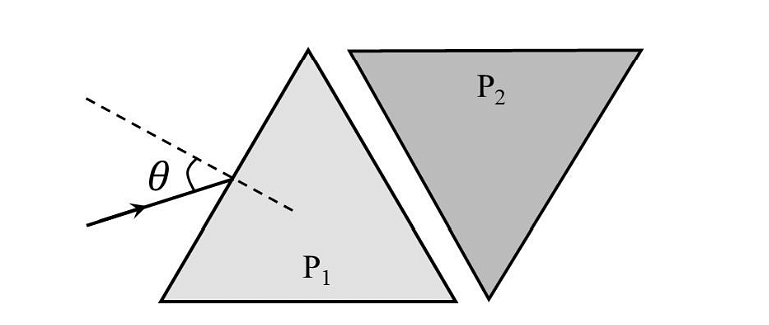For any positive integer $n$, let $S_{n}:(0, \infty) \rightarrow R$ be defined by
$S_{n}(x)=\displaystyle\sum_{k=1}^{n} \cot ^{-1}\left(\frac{1+k(k+1) x^{2}}{x}\right),$
where for any $x \in R, \cot ^{-1}(x) \in(0, \pi)$ and $\tan ^{-1}(x) \in\left(-\frac{\pi}{2}, \frac{\pi}{2}\right)$. Then which of the following statements is(are) TRUE?
$S_{n}(x)=\displaystyle\sum_{k=1}^{n} \cot ^{-1}\left(\frac{1+k(k+1) x^{2}}{x}\right),$
where for any $x \in R, \cot ^{-1}(x) \in(0, \pi)$ and $\tan ^{-1}(x) \in\left(-\frac{\pi}{2}, \frac{\pi}{2}\right)$. Then which of the following statements is(are) TRUE?
- $S _{10}( x )=\frac{\pi}{2}-\tan ^{-1}\left(\frac{1+11 x ^{2}}{10 x }\right)$, for all $x >0$
- $\displaystyle\lim _{n \rightarrow \infty} \cot \left(S_{n}(x)\right)=x$, for all $x>0$
- The equation $S _{3}( x )=\frac{\pi}{4}$ has a root in $(0, \infty)$
- $\tan \left(S_{n}(x)\right) \leq \frac{1}{2}$, for all $n \geq 1$ and $x>0$
The Correct Option is A, B
Solution and Explanation
(A) $S _{10}( x )=\frac{\pi}{2}-\tan ^{-1}\left(\frac{1+11 x ^{2}}{10 x }\right)$, for all $x >0$
(B) $\displaystyle\lim _{n \rightarrow \infty} \cot \left(S_{n}(x)\right)=x$, for all $x>0$
Top Questions on Sequence and series
- How many times 3 comes from 1 to 1000?
- JEE Main - 2024
- Mathematics
- Sequence and series
- \(3, a, b, c\) are in Ap and \(3, a-1, b+1, c+9\) are in GP. Then AM of \(a, b, c\) is
- JEE Main - 2024
- Mathematics
- Sequence and series
- \(S1 = 3,9, 15, ... 25\) terms and \(S2 = 3,8, 13, ... 37\) terms, then the number of common terms in \(S1, S2\) is equal to
- JEE Main - 2024
- Mathematics
- Sequence and series
- 4,11,21,34….. Find the value of \(\frac{(S_{29}-S_{9})}{60}\)?
- JEE Main - 2023
- Mathematics
- Sequence and series
- If \(a_n=\frac{-2}{4n^2-16n+15}\) and a1 + a2 + …… + a25 = m/n where m and n are coprime, then the value of m + n is
- JEE Main - 2023
- Mathematics
- Sequence and series
Questions Asked in JEE Advanced exam
- Let \(S=\left\{\begin{pmatrix} 0 & 1 & c \\ 1 & a & d\\ 1 & b & e \end{pmatrix}:a,b,c,d,e\in\left\{0,1\right\}\ \text{and} |A|\in \left\{-1,1\right\}\right\}\), where |A| denotes the determinant of A. Then the number of elements in S is _______.
- JEE Advanced - 2024
- Matrices
- A block of mass \(5 kg\) moves along the \(x-\)direction subject to the force \(F = (−20x + 10) N,\) with the value of \(x \) in metre. At time \(t = 0 s,\) it is at rest at position \(x = 1 m\). The position and momentum of the block at \(t = (\pi/4)\) s are
- JEE Advanced - 2024
- Work-energy theorem
- Two equilateral-triangular prisms \(P_1 \)and \(P_2\) are kept with their sides parallel to each other, in vacuum, as shown in the figure. A light ray enters prism \(P_1\) at an angle of incidence 𝜃 such that the outgoing ray undergoes minimum deviation in prism \(P_2\). If the respective refractive indices of \(P_1\) and\( P_2\) are \(√ 3 /2\) and \(√3\), then \(\theta = sin{−1}[\sqrt \frac{ 3}{ 2} sin ( \frac{\pi}{B} )],\) where the value of \(\beta\) is ______.

- JEE Advanced - 2024
- Ray optics and optical instruments
- Let \(\overrightarrow{OP}=\frac{\alpha-1}{\alpha}\hat{i}+\hat{j}+\hat{k},\overrightarrow{OQ}=\hat{i}+\frac{\beta-1}{\beta}\hat{j}+\hat{k}\) and \(\overrightarrow{OR}=\hat{i}+\hat{j}+\frac{1}{2}\hat{k}\) be three vector where α, β ∈ R - {0} and 0 denotes the origin. If \((\overrightarrow{OP}\times\overrightarrow{OQ}).\overrightarrow{OR}=0\) and the point (α, β, 2) lies on the plane 3x + 3y - z + l = 0, then the value of l is _______.
- JEE Advanced - 2024
- Vector Algebra
- Let \(\vec{p}=2\hat{i}+\hat{j}+3\hat{k}\) and \(\vec{q}=\hat{i}-\hat{j}+\hat{k}\). If for some real numbers α, β and γ we have
\(15\hat{i}+10\hat{j}+6\hat{k}=α(2\vec{p}+\vec{q})+β(\vec{p}-2\vec{q})+γ(\vec{p}\times\vec{q})\),
then the value of γ is ________.- JEE Advanced - 2024
- Vector Algebra
Concepts Used:
Sequence and Series
Sequence: Sequence and Series is one of the most important concepts in Arithmetic. A sequence refers to the collection of elements that can be repeated in any sort.
Eg: a1,a2,a3, a4…….
Series: A series can be referred to as the sum of all the elements available in the sequence. One of the most common examples of a sequence and series would be Arithmetic Progression.
Eg: If a1,a2,a3, a4……. etc is considered to be a sequence, then the sum of terms in the sequence a1+a2+a3+ a4……. are considered to be a series.
Types of Sequence and Series:
Arithmetic Sequences
A sequence in which every term is created by adding or subtracting a definite number to the preceding number is an arithmetic sequence.
Geometric Sequences
A sequence in which every term is obtained by multiplying or dividing a definite number with the preceding number is known as a geometric sequence.
Harmonic Sequences
A series of numbers is said to be in harmonic sequence if the reciprocals of all the elements of the sequence form an arithmetic sequence.
Fibonacci Numbers
Fibonacci numbers form an interesting sequence of numbers in which each element is obtained by adding two preceding elements and the sequence starts with 0 and 1. Sequence is defined as, F0 = 0 and F1 = 1 and Fn = Fn-1 + Fn-2



